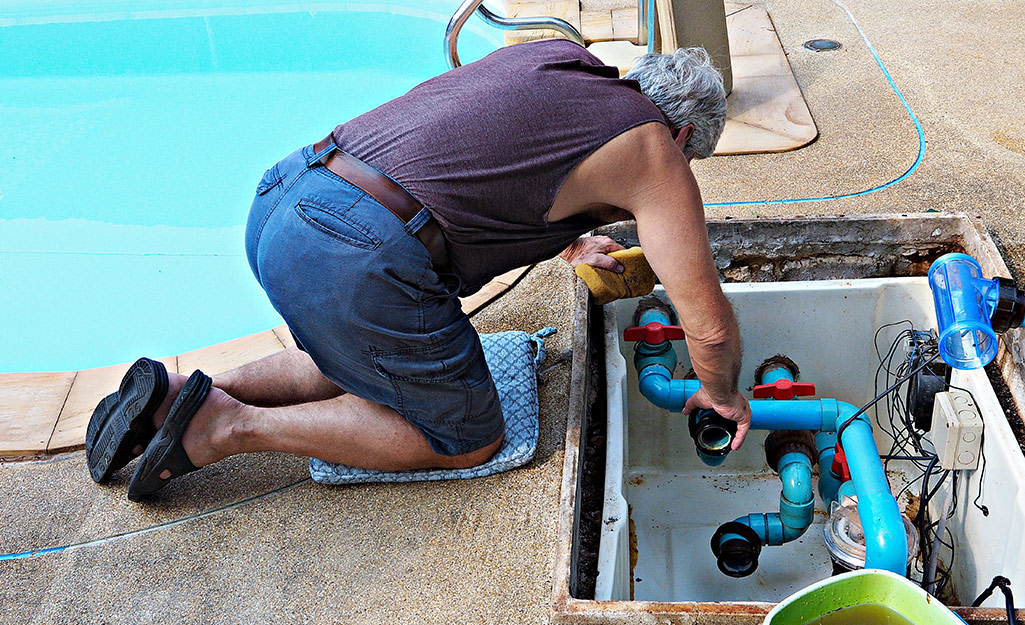
If you’re like most people, the first thing that comes to mind when you think of pools is fun and relaxation.
But if your pool has started to become green and murky, it might be time for some serious maintenance work. This is where pool service Melbourne experts come into the picture.
Fortunately, there are several ways pool cleaners can help to fix this issue by ensuring that all of the proper chemicals are being used at the right times.
Pool water circulation is not happening.
If your pool pump is not working, you can do a few other things to help the situation.
Check that your filter is not clogged. The most common culprit of this problem is algae growth, which can be prevented with the regular use of chemicals such as bleach or muriatic acid.
Ensure that the pool pump runs at its optimal speed (the amount of air needed per minute).
If it’s too low, then more water will need to be circulated through the system in order for all surfaces of your swimming area to get clean after every cycle; if it’s too high, then more energy will go into moving around this extra volume—and before long those expensive filters may have been damaged by excessive wear and tear!
The water pH is too high or low
pH levels are a measure of the acidity or alkalinity of a substance. The lower the pH, the more acidic it is, and your pool’s pH level will be higher if it’s too low.
The average pool water has a pH level between 7 and 8 (the neutral range). When you add chlorine to your swimming pool, this can change its chemistry; but even if you don’t use any chlorine at all during the swimming season (which most people don’t).
Over time, your water will still start to lose its natural balance due to aging equipment and other factors like algae growth or dirt particles on filters that reduce oxygen flow into the system.
Chlorine levels are off.
Chlorine is a chemical that kills bacteria, so it’s important that you maintain chlorine levels between 1 and 3 ppm. The test kit will measure the levels of chlorine in your pool, but it’s also possible to adjust these manually with a chlorine dispenser.
The filter isn’t working properly
If you’re not cleaning your pool filter regularly, it can get clogged and stop working. Your filter needs to be cleaned at least once every two weeks if you’re using an in-ground pool or if you have a spa or Jacuzzi every week.

This can be done with a vacuum cleaner attachment with an extension tube attached to it, but most people use a long hose with a bucket on the end (or even just some rags).
The easiest way to clean your filter is by vacuuming up all of the debris on top of it before emptying out any remaining water through another opening at the bottom of your system so that nothing gets left behind during this process—we recommend emptying out 200 gallons per day!
Once this has been done, rinse off all remaining dirt from inside both sides before returning everything back into place again; then repeat twice more until there’s nothing left behind except fresh air flowing freely through every part of our system, which means we’re ready for another round!
The pool has too many algae
If you have a green pool, it’s likely that algae growth is the culprit. Algae in your pool can be caused by many factors, including temperature change and fluctuations in pH levels.
In addition to these factors, yard waste like leaves and lawn clippings are another common source of organic matter that leads to excessive plant growth within your water system.
A lack of chlorine can also contribute to algae blooms on its own: without proper sanitization of the water supply system (which includes filters), unwanted microorganisms will grow unchecked and eventually produce waste products that create an unpleasant odour or colouration for guests at your facility or residence.
Conclusion
If you’re in a situation where your pool needs to be cleaned and heavily treated, it’s time to call in the professional pool service in Melbourne. Pool cleaners can help you fix all of these problems in a short time frame with minimal effort on your part.
